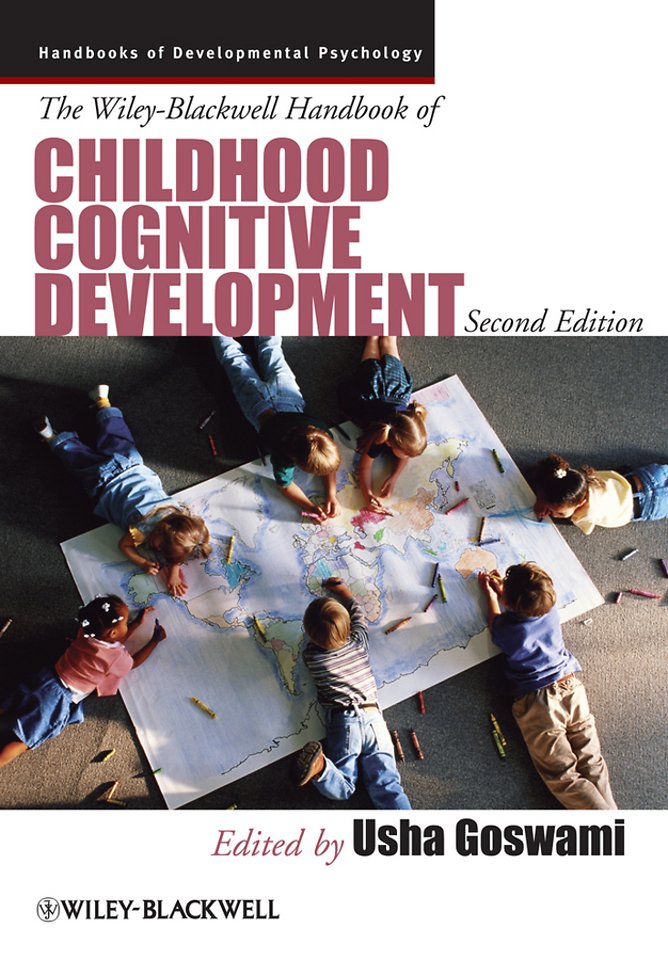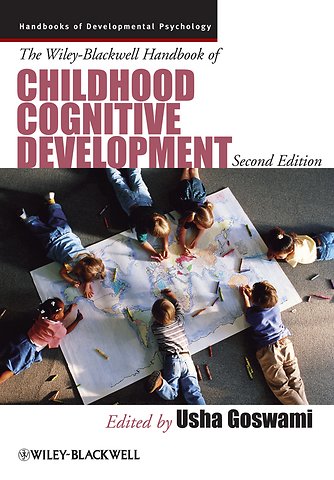Wiley–Blackwell Handbook of Childhood Cognitive Development 2e
Samenvatting
This definitive volume is the result of collaboration by top scholars in the field of children′s cognition.
New edition offers an up–to–date overview of all the major areas of importance in the field, and includes new data from cognitive neuroscience and new chapters on social cognitive development and language
Provides state–of–the–art summaries of current research by international specialists in different areas of cognitive development
Spans aspects of cognitive development from infancy to the onset of adolescence
Includes chapters on symbolic reasoning, pretend play, spatial development, abnormal cognitive development and current theoretical perspectives
Specificaties
Inhoudsopgave
<p>List of Contributors xi</p>
<p>Introduction 1</p>
<p>Part I Infancy: The Origins of Cognitive Development 5</p>
<p>1 How Do Infants Reason About Physical Events? 11<br /> Renée Baillargeon, Jie Li, Yael Gertner, and Di Wu</p>
<p>2 Social Cognition and the Origins of Imitation, Empathy, and Theory of Mind 49<br /> Andrew N. Meltzoff</p>
<p>3 Kinds of Agents: The Origins of Understanding Instrumental and Communicative Agency 76<br /> György Gergely</p>
<p>4 Social Cognition and Social Motivations in Infancy 106<br /> Malinda Carpenter</p>
<p>5 Born to Categorize 129<br /> Paul C. Quinn</p>
<p>6 Early Memory Development 153<br /> Patricia J. Bauer, Marina Larkina, and Joanne Deocampo</p>
<p>7 Early Word–Learning and Conceptual Development: Everything Had a Name, and Each Name Gave Birth to a New Thought 180<br /> Sandra R. Waxman and Erin M. Leddon</p>
<p>Part II Cognitive Development in Early Childhood 209</p>
<p>8 Development of the Animate Inanimate Distinction 213<br /> John E. Opfer and Susan A. Gelman</p>
<p>9 Language Development 239<br /> Michael Tomasello</p>
<p>10 Developing a Theory of Mind 258<br /> Henry M. Wellman</p>
<p>11 Pretend Play and Cognitive Development 285<br /> Angeline Lillard, Ashley M. Pinkham, and Eric Smith</p>
<p>12 Early Development of the Understanding and Use of Symbolic Artifacts 312<br /> Judy S. DeLoache</p>
<p>Part III Topics in Cognitive Development in Childhood 337</p>
<p>13 Memory Development in Childhood 347<br /> Wolfgang Schneider</p>
<p>14 Causal Reasoning and Explanation 377<br /> Barbara Koslowski and Amy Masnick</p>
<p>15 Inductive and Deductive Reasoning 399<br /> Usha Goswami</p>
<p>16 The Development of Moral Reasoning 420<br /> Larry P. Nucci and Matthew Gingo</p>
<p>17 Spatial Development: Evolving Approaches to Enduring Questions 446<br /> Lynn S. Liben and Adam E. Christensen</p>
<p>18 Children′s Intuitive Physics 473<br /> Friedrich Wilkening and Trix Cacchione</p>
<p>19 What is Scientific Thinking and How Does it Develop? 497<br /> Deanna Kuhn</p>
<p>20 Reading Development and Dyslexia 524<br /> Margaret J. Snowling and Silke M. Göbel</p>
<p>21 Children′s Understanding of Mathematics 549<br /> Peter Bryant and Terezinha Nuñes</p>
<p>22 Executive Function in Typical and Atypical Development 574<br /> Philip David Zelazo and Ulrich Müller</p>
<p>23 Language and Cognition: Evidence from Disordered Language 604<br /> Barbara Dodd and Sharon Crosbie</p>
<p>24 The Empathizing–Systematizing (E–S) Theory of Autism: A Cognitive Developmental Account 626<br /> Simon Baron–Cohen</p>
<p>Part IV Theories of Cognitive Development 641</p>
<p>25 Piaget′s Theory: Past, Present, and Future 649<br /> Patricia H. Miller</p>
<p>26 Vygotsky and Psychology 673<br /> Harry Daniels</p>
<p>27 Information–Processing Models of Cognitive Development 697<br /> Graeme S. Halford and Glenda Andrews</p>
<p>28 Neuroconstructivism 723<br /> Gert Westermann, Michael S. C. Thomas, and Annette Karmiloff–Smith</p>
<p>29 Individual Differences in Cognitive Development 749<br /> Robert J. Sternberg</p>
<p>Index 775</p>

